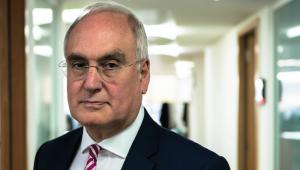Committee members also raised concerns over the “quality and usefulness” of information supplied by the academy trusts, for the first report of its kind on their accounts.
“Academy trusts are educating increasing numbers of children and handling large amounts of public money,” the PAC said.
“It is therefore crucial that they show the highest standards of governance, accountability and financial management.”
It added: “Too often academy trusts are falling short of these standards and the Department for Education is too slow to react.”
Academy trusts’ income in 2015-16 was £20bn, the public finances watchdog noted, in its analysis of the academy accounts report.
The PAC report was released on Friday last week and highlighted that Department for Education grants make up 90% of academy trusts’ income.
Trusts were now responsible for teaching 2 million pupils across 6,000 academies, the MPs also highlighted, and those numbers were increasing.
The watchdog report added: “The cost to pupils and the taxpayer of failure are particularly high for multi-academy trusts [where an academy chain runs several schools].”
Greater transparency and accountability were needed in the sector, the MPs concluded.
It took 14 months for this first Academy sector annual report and accounts for 2015-16 to come out after the financial year, and the report for 2016-17 is expected this October.
The PAC said: “The transparency and accountability of the information included within the account, and its usefulness to stakeholders, is lessened by this significant delay between the reporting period and its publication as the published information is by then out of date.”
The DfE needs to make the report “more timely”, it added.
Committee chair Meg Hillier said: “If parents, parliament and others are to hold them properly to account, it is vital they have timely access to transparent and detailed information.
“Academies and the trusts that run them must be judged against the standards expected of other schools funded by the taxpayer.”
Hillier also highlighted there was “too often a disregard for financial probity in related party transactions”.
Related party transactions are business arrangements between academy trusts and an organisation or person where there is already a connection.
During 2015-16 40% of academy trusts engaged in related party transactions, worth a total of £120m, according to the PAC report.
The watchdog analysis concluded related party transactions should be “transparent and properly procured”.
The PAC report also found that some academies appeared to be paying excessive salaries.
The Education and Skills Funding Agency wrote to 29 single academies in November last year asking for justification of salaries over £150,000. They all responded. The ESFA said it was unsatisfied with two thirds of the reponses.
Kevin Courtney, general secretary of the NUT section of the National Education Union, said: “The sort of excessive salaries that we see in the academies sector cannot be justified, particularly at a time when teachers’ pay has been pegged at below inflation for several years, contributing to the current teacher shortage.”
A DfE spokesperson said: “All academy trusts operate under strict system of financial accountability and have to publish their audited accounts.
“To ensure all pupils get the excellent education they deserve we continue to scrutinise the system on an annual basis and take action where necessary, such as recently asking all trusts paying high salaries to justify them.”
The NEU, which held its conference over the Easter period, also released government data this week, revealing 4,000 children with special needs [an Education Health and Care Plan or a Statement] do not have a school place.
This number has increased more than five fold in the last five years, according to the government figures.
The NEU has also released a survey of its 8,173 members, which showed 81% of teachers had considered leaving teaching in the last year because of the work load.
More than 80% of teachers who responded said they were teaching more hours now, on average, than they were in 2016.











